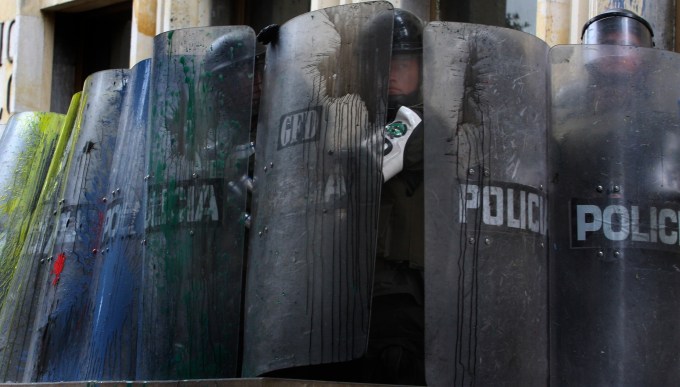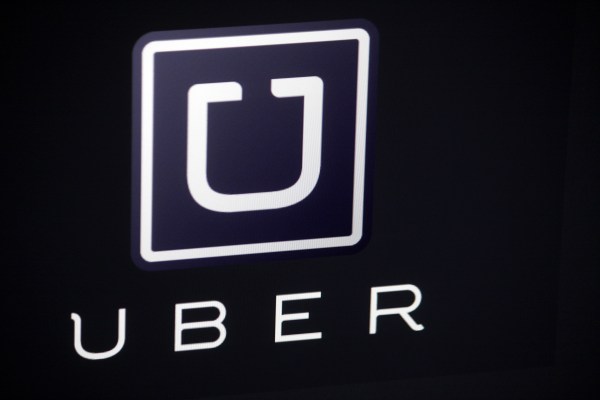Uber in Colombia has been having a tough time of late.
Feeling sorry for the ride-hailing service might not be particularly high on anybody’s to do list, but that doesn’t stop the cocktail of issues it faces from being any less daunting.
The combination of three factors — aggression, legislation and government opposition — arguably makes Colombia one of Uber’s toughest battlegrounds.
Battle grounds
Intimidation and violence against Uber drivers in Colombia is astoundingly prevalent. Most common in Colombia’s capital, Bogotá, incidents are also regular occurrences in other cities such as Medellín and Barranquilla.
Where black cab drivers in London may have settled for sit-in protests, Uber drivers in Colombia have been subject to more than 100 instances of violence since the start of 2016. Given that 2016 is only nine weeks old, that’s pretty impressive.
Attacks have not been minor, either. On February 12th this year in Bogotá, Carmen Santos, the daughter of Francisco Santos (who is, incidentally, a former Colombian Vice President and the cousin of incumbent President Juan Manuel Santos) was trapped inside her Uber for 40 minutes as taxi drivers hurled stones and bricks at the vehicle. The security team that rescued her also suffered damage to its car.
Other cases have seen cab drivers — known in Colombia as taxistas — request Uber cars via the app, only to attack the driver when the car arrives at the pick-up destination. Passengers have allegedly been forced by furious taxistas to exit Uber cars and take a local taxi instead.
Julian Echeverria, a former Uber driver in Bogotá, said the attack on the former VP’s daughter was instrumental in his decision to resign from Uber. “That’s when I thought ‘enough’,” Echeverria explained. “If they can destroy a government car, they can destroy my car. It is not safe to be an Uber driver in Bogotá right now. You don’t know that something will definitely happen but you don’t feel safe driving around the city, especially at night.”
There have been suggestions that attacks against Uber drivers could turn deadly. The day after the attack on Carmen Santos’ Uber, Hugo Ospina, president of Colombia’s taxi driver association, took to radio station LA FM to warn that “in our guild, we have groups of people who are demobilized from illegal armed groups [who] are arming themselves to assassinate Uber drivers”.
In a country where civil war has raged for more than 50 years, in which guerrilla separatists and state sanctioned paramilitaries have been accused of horrific war crimes, this is no idle threat. In fact, as well as Ospina’s warnings of assassination attempts, webzine Kienyke.com also published a recording of supposed taxi drivers calling for paramilitary style attacks against Uber drivers.

A group of police cover their bodies as an observes during a May Day march through the streets of Bogota, Thursday, May,1, 2008. (AP Photo/William Fernando Martinez)
Legal issues
Questions of legality plague Uber in Colombia. In the same interview, Ospina also criticized the former VP’s daughter for using what taxi drivers in Colombia have labelled an illegal service.
 Uber’s claims that it operates legally in Colombia are proving to be somewhat of a grey area. On March 7, Pablo Arteaga, the Colombian superintendent for ports and transport, fined the ride-hailing app COP 451 million – equivalent to just over $140,000 – for violating the country’s transport legislation.
Uber’s claims that it operates legally in Colombia are proving to be somewhat of a grey area. On March 7, Pablo Arteaga, the Colombian superintendent for ports and transport, fined the ride-hailing app COP 451 million – equivalent to just over $140,000 – for violating the country’s transport legislation.
Arteaga ruled Uber did not comply with the requirements of Colombia’s transport regulations, adding that use of Uber’s app was not permitted by the Ministry of Transport.
He said that Uber “illegally facilitated provision of services under irregular conditions” and that the arrangement between Uber partner drivers and the company “offered an unauthorized service”. Although small compared to some of the fines it has faced elsewhere, the penalty against Uber is an unprecedented move in Colombia.
Uber has consistently maintained its presence in Colombia does not breach any law. Concerning the fine, the ride-sharer responded by saying that the company, its drivers and its users, were the victims of relentless persecution in Colombia, adding that it would not cease operations in the country.
“Uber has not been formally notified of this fine and will continue to operate in Colombia,” a spokesperson explained.
“We again state our support for regulatory initiatives such as the draft bill currently in [the Colombian] Congress, which aims to resolve the legal void for platforms like Uber that offer safe and reliable rides to more than 250,000 citizens and accounts for a flexible source of income for thousands of Colombian households.”
Two days after this ruling Uber was back in hot water, this time with the aviation authority. The app is under investigation for allegedly misleading customers over its Ubercopter – i.e. Uber helicopter – service. Rolled out at events such as the Cannes Film Festival, Colombia’s air authority is now conducting an inquiry which, if it goes against the app, could result in yet another fine.
These investigations are no huge surprise. Uber has been a political whipping boy the app first landed in 2013. In fact, November 2015 saw President Santos issue Uber with an ultimatum, threatening to ban the company from operating within the country if it did not formally register as a business within six months. If this threat holds true, Uber could face a very difficult problem indeed in May this year, when the deadline is due to expire. With all the other problems Uber faces here, it begs the question whether or not sticking around is a sensible option.
